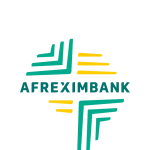Nigeria moves to exit FATF grey-list
By: Patience Ikpeme
Nigeria is intensifying its efforts to remove itself from the grey-list of the global Financial Action Task Force (FATF).
According to a statement released on Thursday by the Nigerian Financial Intelligence Unit (NFIU), the country’s proactive measures to exit the grey-list have resulted in a significant reduction in its previously identified deficiencies.
As a result of Nigeria’s positive push, the FATF has decreased the number of identified deficiencies from 84 to 15.
To exit the grey-list, Nigeria must address several deficiencies mandated by the FATF. These include: conducting a comprehensive assessment of money laundering and terrorist financing risks and updating the national anti-money laundering and counter-terrorist financing strategy to align with other relevant national strategies pertaining to high-risk predicate offenses.
Furthermore, Nigeria needs to strengthen both formal and informal international cooperation to better address money laundering and terrorist financing risks. Additionally, there is a need to enhance the risk-based supervision of FIs and Designated Non-Financial Businesses and Professions (DNFBPs) in terms of anti-money laundering and counter-terrorist financing measures. Furthermore, preventive measures for high-risk sectors need to be implemented more effectively.
Additional deficiencies that Nigeria needs to address include: ensuring that competent authorities have timely access to accurate and up-to-date information on beneficial owners of legal persons and implementing sanctions for non-compliance with beneficial owner obligations; increasing the sharing and utilization of financial intelligence by the Financial Intelligence Units (FIUs) and Law Enforcement Agencies (LEAs).
Moreover, Nigeria must demonstrate a consistent increase in the number of money laundering investigations and prosecutions in line with the identified risks. It is also important to actively detect violations of currency declaration obligations and impose appropriate sanctions. Additionally, Nigeria needs to maintain comprehensive data on frozen, seized, confiscated, and disposed assets.
In order to comply with the requirements of the Financial Action Task Force (FATF), Nigeria must exhibit ongoing progress in identifying and prosecuting various forms of Terrorism Financing (TF) activities in line with risk and enhancing interagency collaboration on TF investigations. Nigeria must also engage in risk-based and focused outreach to Non-Profit Organizations (NPOs) at risk of TF abuse and implement risk-based monitoring for NPOs at risk of TF abuse without disrupting or discouraging legitimate NPO activities.
According to the Chief Executive Officer of the NFIU, Modibbo HammanTukur, the country’s Anti Money Laundering/Counter-Funding Terrorism (AML/CFT) framework stakeholders and representatives from the private sector have collaborated to develop a revised strategic roadmap to leave the FATF grey-list.
To achieve this objective, consistency, commitment, and coordinated efforts by all stakeholders, especially reporting entities from the private sector, are required.
Tukur urged the relevant agencies engaged in the elimination of AML/CFT to guarantee that Nigeria’s financial sector is not regarded as a haven for illicit money.
Aliyu Ahmed, the Permanent Secretary of the Federal Ministry of Finance, Budget and National Planning, urged all stakeholders to implement appropriate measures to prevent the misuse of Nigeria’s financial system.




